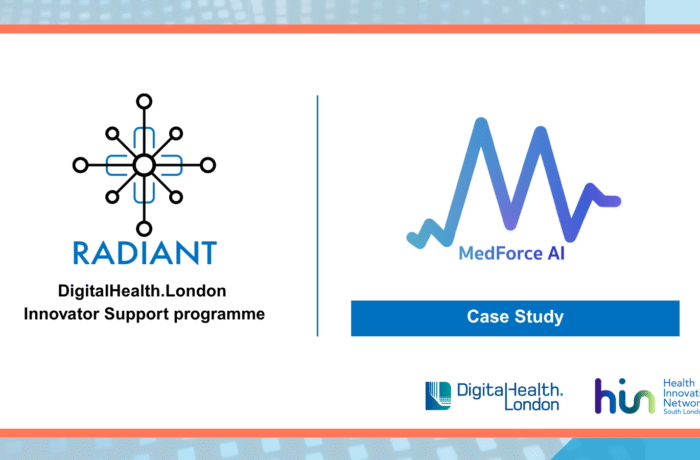Bringing digital innovation to paediatric physiotherapy
Posted on
Rebecca Smith, Senior Paediatric Physiotherapist at Chelsea and Westminster Hospital NHS Foundation Trust and Horizon Fellow, shares how her team is using digital innovation to help parents understand “normal variants” in their children.
“Is that normal?” Is a question that many parents or guardians will ask throughout their child’s upbringing. Most of the time, the answer is yes. Occasionally the answer is no. Is there even such a thing as normal? A crucial part of the job of a Paediatric Physiotherapist is to make the distinction!
Recognising normal variants
I have spent the last three years of my career as a Paediatric Physiotherapist. I often think it’s one of the most fun jobs in the world – who else gets to run around and play silly games at work, all in the name of exercise?!
Normal variants are frequently discussed in the paediatric orthopaedic world. In simple terms, it refers to the normal growth pattern of a child’s bones, from birth to adulthood. Examples of this include flat feet and “knock knees”. As physios, we know that when within the defined “normal” ranges, the child will grow and the condition will correct itself, causing no future problems.
We see many of these children in physiotherapy clinics who rarely require any treatment. Significant clinical assessment time is spent on this. Parents will have waited for their physiotherapy appointment, they may become more worried or even consult “Doctor Google” which contains a vast amount of information – some helpful, some less so. It can be a vicious circle, but could there be a better way?
There are of course exceptions, which is why our job is important – many paediatric physiotherapists will recall cases where they were able to pick up something more concerning and refer on to our orthopaedic colleagues. These are the cases that lie outside the “normal” windows of measurement. Eventually, we hope referrers will have the resources to make this distinction.
The potential of digital
So what are we doing about it? From literature searches and discussions with both referrers and other clinicians, it seems education is key. I’m very fortunate to have a place on the Horizon Fellowship, which is giving me the opportunity to use digital innovation to help improve the situation. Whilst I don’t relish the idea of being the next global YouTube sensation, my plan is to create some quick, fun videos which we can circulate to share more information about “Normal Variants” and what parents should look out for. I’m also reaching out to our referrers to provide further training and education sessions. Finally, our service is now grouping these referrals into a monthly clinic, where we will be able to conduct more efficient assessments and save clinical time as a whole.
Looking to the future
It’s not always easy to distinguish the normal from cases requiring intervention and we recognise that as physios we have a key role to play in identifying these cases. With more digital resources at our fingertips, we can spread knowledge and information and ensure that those children that do need us get the correct intervention as early as possible – watch this space!
DigitalHealth.London is delighted to publish blogs by the NHS staff and digital health companies we support through our programmes, as well as sector thought-leaders, experts and academics. Any opinions expressed within blogs published on our website are those of the author and not necessarily held by DigitalHealth.London. For more information, or if you would like to write a blog for our website, please email info@digitalHealth.london.


